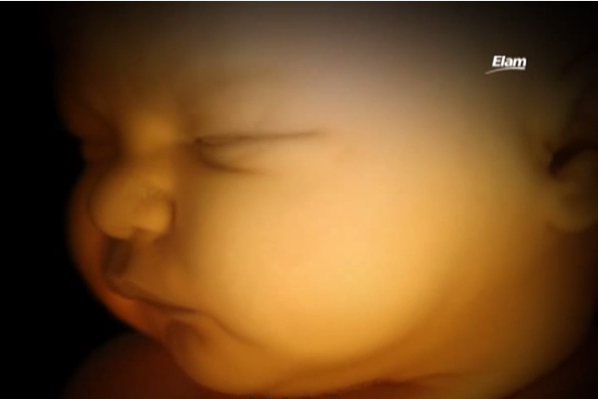The American Civil Liberties Union wants a federal court to permanently block a new Ohio law that protects unborn babies from abortion.
On Tuesday, the pro-abortion legal group asked Judge Michael Barrett to extend his temporary block on the heartbeat law, which protects unborn babies from abortion once their heartbeats are detectable, according to the AP.
Barrett issued a preliminary injunction against the law in July, arguing that it places an “’undue burden’ on a woman’s right to choose a pre-viability abortion.” He also said the ACLU likely would succeed in its legal challenge.
The Ohio law prohibits abortions after an unborn baby’s heartbeat is detectable, about six weeks of pregnancy. Because many women do not even know they are pregnant at this early stage, the legislation could protect almost all unborn babies in Ohio. Gov. Mike DeWine signed the law in April.
Barrett’s initial ruling did not come as a surprise, and DeWine promised to defend the rights of unborn babies in court.
PRO-LIFE COLLEGE STUDENT? LifeNews is looking for interns interested in writing, social media, or video creation. Contact us today.
However, this week, the ACLU argued that because the state did not appeal the preliminary injunction, the court should permanently block the law, State News reports.
Here’s more:
Freda Levenson, legal director for the ACLU of Ohio, says the federal court blocked the ban from going into effect in July. And she says the state hasn’t fought that.
“The state had an opportunity to appeal that ruling but it let the date to file an appeal come and go without doing anything,” Levenson says.
So, Levenson says her group is asking the court to permanently block the law, as has happened in some other states. When asked why the Ohio Attorney General’s office didn’t appeal, it replied with a written statement saying: “Our office will defend Ohio’s laws.”
The U.S. Supreme Court limited states’ ability to protect unborn babies from abortion in Roe v. Wade and Planned Parenthood v. Casey. Pro-life advocates hope cases like the one in Ohio will prompt the high court to reconsider this precedent.
Earlier this year, DeWine told the Dayton Daily News that he hopes the U.S. Supreme Court ultimately will uphold the law. But he cautioned Ohioans to be prepared for lower courts to rule against it because of the current precedent of Roe v. Wade.
“It’s important for everyone to have the right expectations and for those of us who hope that this law is upheld to fully to understand that we are not going to see that in the lower courts,” the governor said. “It ultimately is for the Supreme Court to decide.”
Ohio Attorney General Dave Yost previously promised to defend the law as well.
“Sometimes, the evolution of the law requires bold steps,” he told Fox 45. “In the last 46 years, the practice of medicine has changed. Science has changed. Even the point of viability has changed. Only the law has lagged behind. This law provides a stable, objective standard to guide the courts.”
Though the court battle may be long, DeWine said it is worth it to protect unborn babies.
“It is our duty I believe and it’s the essential function of government to protect those who can’t protect themselves, to protect those who are voiceless,” he said.
However, abortion activists also have promised to fight to keep abortion on demand legal in Ohio.
“This legislation is blatantly unconstitutional and we will fight to the bitter end to ensure that this bill is permanently blocked,” said Freda Levenson with the ACLU of Ohio, previously.
If enacted, the law could save tens of thousands of unborn babies’ lives. The Ohio Department of Health reported 20,893 abortions in 2017 in the state.
Some pro-lifers have renewed hope that the new conservative-majority U.S. Supreme Court will uphold an abortion ban and overturn Roe v. Wade. Others, however, are hesitant because of concerns about losing the court battle and being forced to reimburse pro-abortion groups for their legal fees.
It also is difficult to predict if the high court would take the case – especially after it recently refused to hear two other abortion-related cases.
The Supreme Court took away the states’ ability to protect unborn babies from abortion under Roe v. Wade, and instead allowed abortion on demand through all nine months of pregnancy. Roe made the United States one of only seven countries in the world that allows elective abortions after 20 weeks.
A recent Marist Poll found that 80 percent of Americans want to limit abortions no later than three months of pregnancy (12 weeks), and another poll found that 56 percent of voters are in favor of heartbeat bills.








